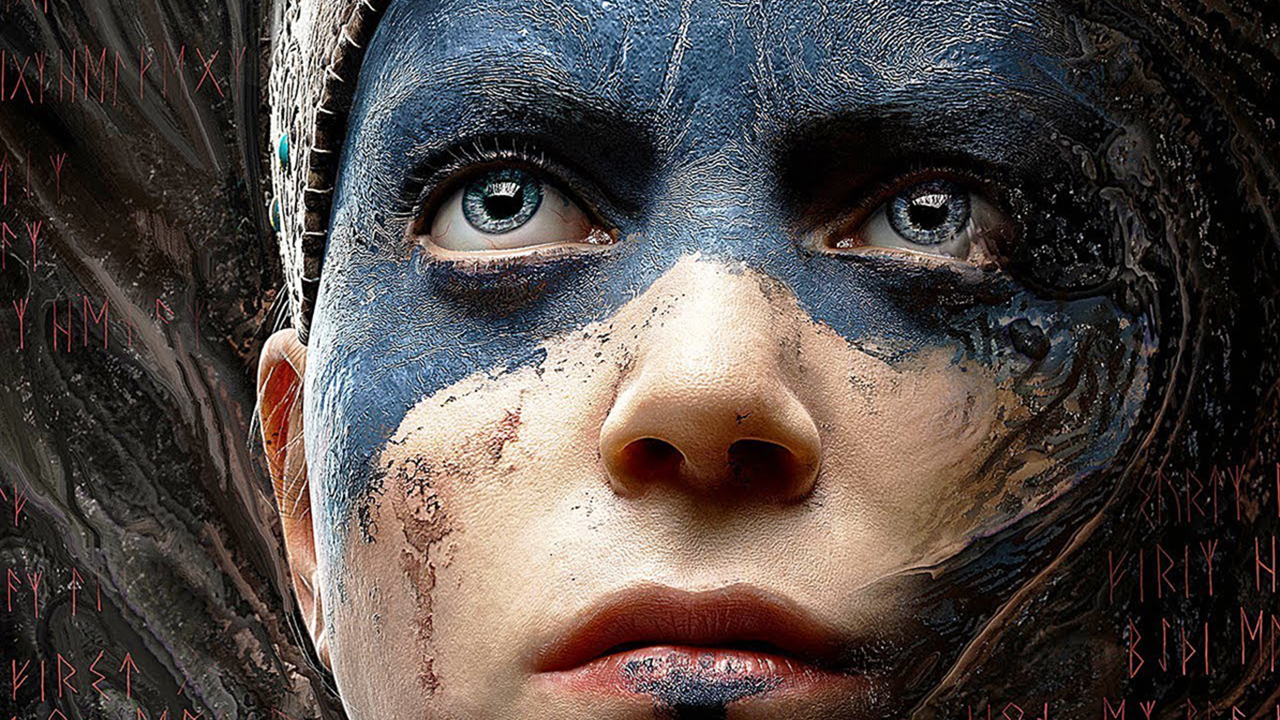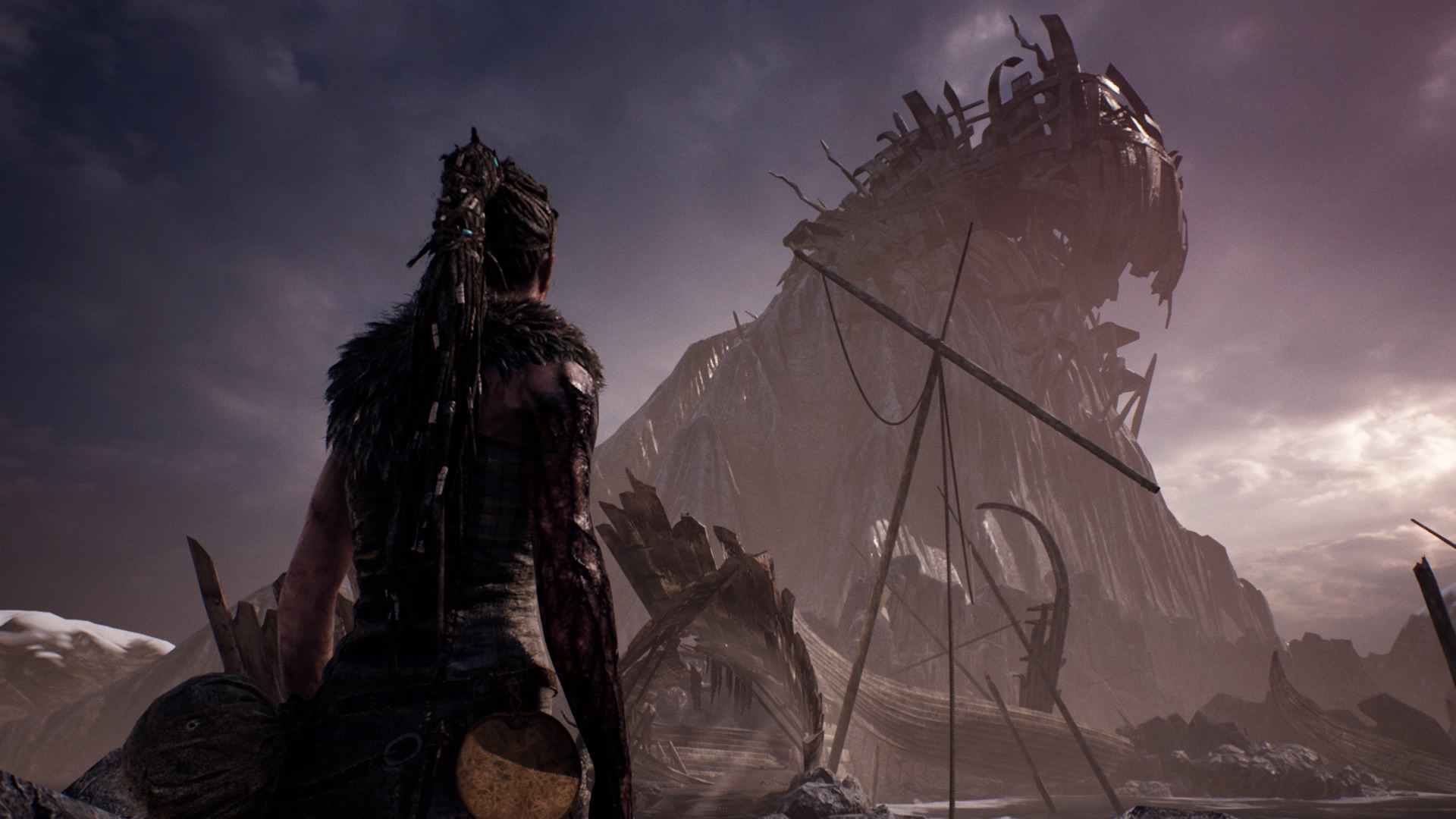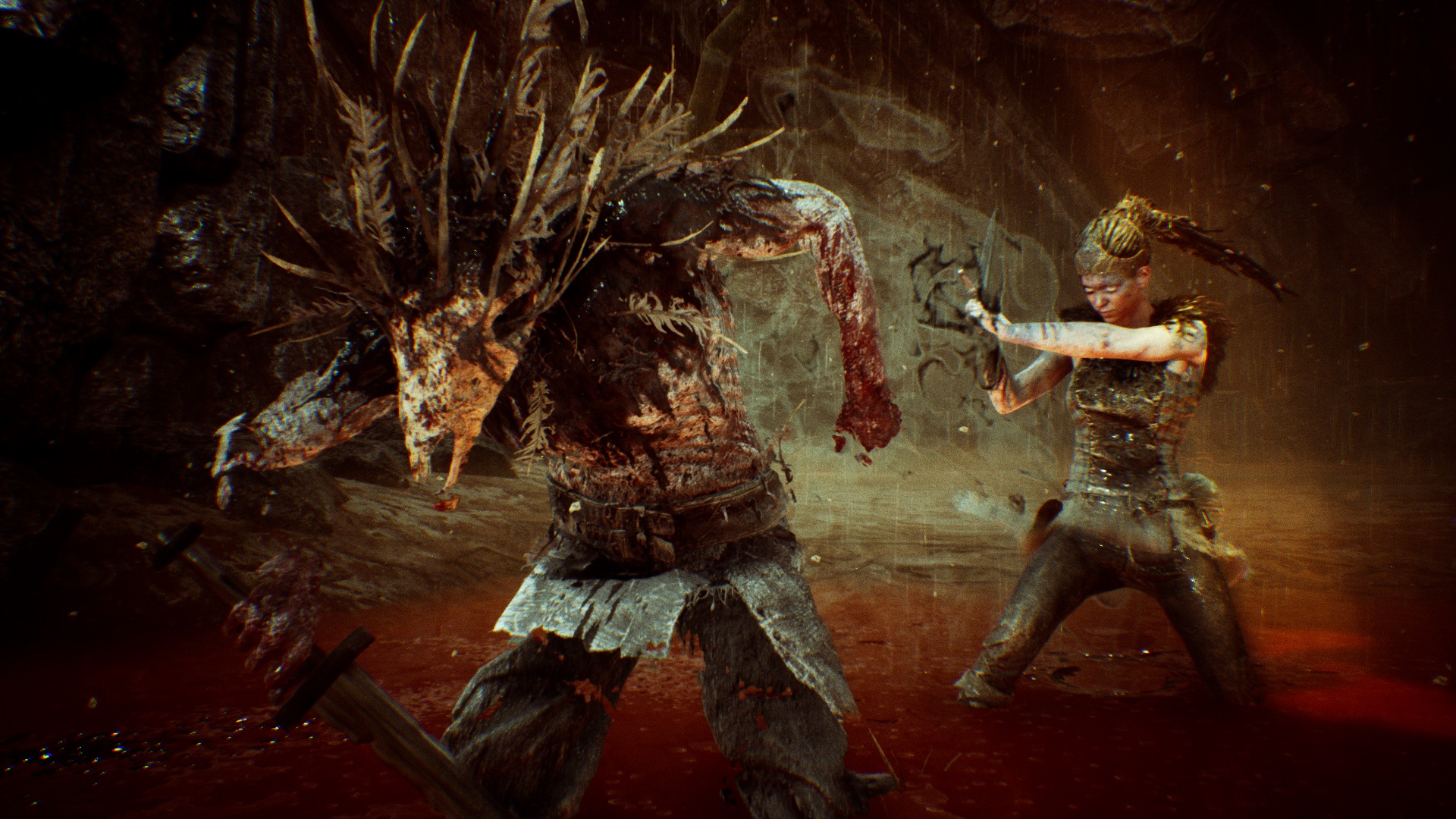The sensitive challenge of portraying psychosis in Hellblade
Avoiding the stigmas of mental health isn't easy, as Ninja Theory's founder knows all too well.

For Tameem Antoniades, Hellblade: Senua's Sacrifice's titular theme of sacrifice hits close to home. For the last two years, he has given up nearly every part of his personal life to create Hellblade. No holidays, no social life, no free time. "I'm exhausted," Antoniades tells me over Skype. "Hellblade has become a burden, a massive responsibility for me and for the team. It felt really important to try and make something that we own and we knew it was going to be super hard, but I think I just pushed this one a bit too far for myself."
Antoniades' conviction doesn't stem only from the usual freezing shock of a studio like Ninja Theory wading into the indie waters, but also because of Hellblade's unique vision: To tell a story that explores mental health in a serious and nuanced way. It's not just a viking-themed brawler, but an intimate character portrait of a warrior. Forget sanity meters, Senua's struggle to coexist with her own psychosis comes from a deeply personal place—both for Antoniades, Melina Juergens, the actress who plays Senua, and the individuals who have psychosis that assisted the project.
Senua's Sacrifice
It's never very clear if Senua's journey into the depths of hell is physical or imagined, but that's exactly the point. Psychosis is a condition where a person loses touch with reality, often experiencing hallucinations or delusions. For Antoniades, it was crucial that Hellblade portrayed psychosis in an accurate way.
Originally, the idea to explore such a heavy topic didn't seem like much of a burden. Antoniades tells me that he was simply fascinated with the subject in the same way he was fascinated with Hellblade's Norse aesthetic. He wanted to create something different and, not yet understanding the human impact psychosis could have, it seemed like an interesting subject.
But it wasn't until Antoniades began researching psychosis that he realized what a massive undertaking Hellblade would be. It might be a smaller game, but the responsibility of accurately portraying a condition that people live with rather than feeding stigmas surrounding it was huge.
"Psychosis was very interesting to me, because although it seems like it happens only to other people, it's a mechanism in the brain that drives it and it's the same mechanism that makes us dream and it's where imagination and creativity come from," Antoniades explains. "I think a lot of the mythical journeys of old were not necessarily just made up stories, but were someone's literal experience. I think that fantasy, psychosis, and mental suffering are all intricately linked. That's what got me into the subject."
"But the more I started to learn about it, and we started to bring in healthcare professionals and people who had actually experienced this stuff, it really hits you like a ton of bricks just how personal it is."
The biggest gaming news, reviews and hardware deals
Keep up to date with the most important stories and the best deals, as picked by the PC Gamer team.
During development of Hellblade, Antoniades and several of the team would interview psychosis patients about their experiences. He tells me it started as a very clinical examination, but it quickly became a challenge to separate himself emotionally from the people he was meeting.
In one particular interview, Antoniades was speaking with a teenage girl about voices she heard. "We asked her if she could ever see the voice, and she said, yeah, sometimes I can see him. And we asked if he looked real, like, I was imagining it was some ghostly apparition. And she was like, yeah it's completely real, as real as anything. And we asked, if you're in a room with a bunch of people how do you know which one is real? And she said, because he's got no eyes. It was a much more literal experience than we imagined. We asked if she tried touching him, and she said she tried once and he screamed so she doesn't do that anymore."
This is a person she lives with, that she's lived with for years. It can appear anytime of day or night, wherever she is. She's a teenage girl. I don't think I could cope with that.
Tameem Antoniades
It was a moment that Antoniades remembers vividly—the moment he understood the gravity of the story he had set out to tell.
"This is a person she lives with, that she's lived with for years. It can appear anytime of day or night, wherever she is. She's a teenage girl. I don't think I could cope with that," Antoniades says. "It's all well and good to understand the symptoms, but story-wise it's about how it affects people growing up. And that's where it's very hard to separate yourself. If you're trying to tell a story about a person and they've been stigmatized by their peers, ostracized or abused, then it becomes very difficult to treat it as a subject. When it's people's real suffering you're talking about."
But it wasn't enough to merely incorporate psychosis into Hellblade's story, Antoniades needed to make sure that Senua was just as human and sympathetic as the teenage girl he had interviewed. There was just one problem: he didn't have the budget to hire an actress.

Digging deep
Sitting next to Antoniades during my interview is Melina Juergens. She's usually Ninja Theory's freelance video editor, but for Hellblade she had the enormous responsibility of bringing Senua to life. She tells me that she's never acted before.
"It was definitely a challenge," she laughs. Not being a trained actress, Antoniades encouraged her to channel her own emotions into the context of Senua's struggle. She would have to dig into her own traumas and pain, and use them to bridge the gap to Senua's. "I had to cry real tears and scream my heart out, and it's hard to have people watching you do that. Sometimes I'd just sit in the middle of the room for half an hour, thinking of really bad things and trying to cry and they're just sitting there waiting."
"What you see on screen is Melina being Melina," Antoniades adds.
But with so many people pouring themselves into Hellblade, Antoniades became increasingly aware of the massive burden he had to make it all worth it. "The more I reached out for help from people, the more it felt like I can't let my team down," he says. "I can't let the people we've been speaking to with mental health difficulties down, I can't let these researchers and professors down who put their name to this game and trust that we'd do a good job. And we have to get this game out without going through the usual publishing support. It was, frankly, very ambitious."
And with all of those pressures building up, it was Antoniades' personal life that suffered. While he made sure his team wasn't overworked, he says he personally worked nearly every waking hour to bring Hellblade to life. For two years.
"I had to learn as much as possible about psychosis and mental illness, how to make a game with a smaller team, and Norse and Celtic mythology. I brought three professors onto the project to help me, two in mental health and one in Norse mythology. We had to build our own mocap studio, and make a compelling game as the glue that binds everything together. It was just too much."
And, what's maybe worse, Antoniades doesn't even know if it'll be worth it. "I think for a lot of other people it's going to be totally not what they want in a game, but I suspect that this will be a game that will touch some people in a very deep way."

Hellblade is now available and you can read our review of it here. But I suspect it'll be some time before Antoniades has closure to everything he's sacrificed. But even if Hellblade: Senua's Sacrifice doesn't live up to expectations, Antoniades tells me he's proud of what they accomplished—not just going independent, but in "taking a subject that's so serious and then forcing yourself to take a medium that a lot of people don't take very seriously and really push to do something meaningful with it."
He tells me that before our call, during a rare break from work, he was watching a documentary about Stanley Kubrick's 2001: A Space Odyssey. "Some of the critical reception for 2001 was blisteringly bad," he says. "But Kubrick knew what he was making and he had assurity in what he was trying to communicate. That's very inspirational, and that's more important than pandering. What's worse than creating something you're proud of and it not being met critically well is to pander to a vision you don't believe in. That's a worse fate to have."
With over 7 years of experience with in-depth feature reporting, Steven's mission is to chronicle the fascinating ways that games intersect our lives. Whether it's colossal in-game wars in an MMO, or long-haul truckers who turn to games to protect them from the loneliness of the open road, Steven tries to unearth PC gaming's greatest untold stories. His love of PC gaming started extremely early. Without money to spend, he spent an entire day watching the progress bar on a 25mb download of the Heroes of Might and Magic 2 demo that he then played for at least a hundred hours. It was a good demo.


